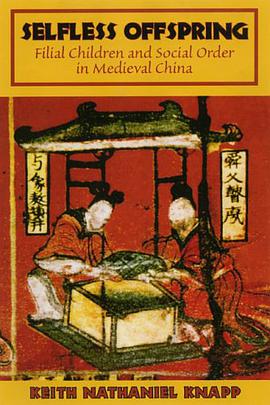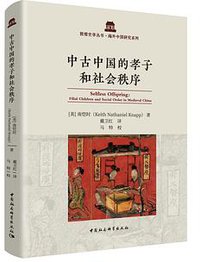Selfless Offspring
豆瓣
Filial Children and Social Order in Medieval China
Keith Nathaniel Knapp
簡介
Both Western and Chinese intellectuals have long derided filial piety tales as an absurd and grotesque variety of children's literature. "Selfless Offspring" offers a fresh perspective on the genre, revealing the rich historical worth of these stories by examining them in their original context: the tumultuous and politically fragmented early medieval era (A.D. 100-600). At a time when no Confucian virtue was more prized than filial piety, adults were moved and inspired by tales of filial children. The emotional impact of even the most outlandish actions portrayed in the stories was profound, a measure of the directness with which they spoke to major concerns of the early medieval Chinese elite. In a period of weak central government and powerful local clans, the key to preserving a household's privileged status was maintaining a cohesive extended family. Keith Knapp begins this far-ranging and persuasive study by describing two related historical trends that account for the narrative's popularity: the growth of extended families and the rapid incursion of Confucianism among China's learned elite. Extended families were better at maintaining their status and power, so patriarchs found it expedient to embrace Confucianism to keep their large, fragile households intact. Knapp then focuses on the filial piety stories themselves--their structure, historicity, origin, function, and transmission--and argues that most stem from the oral culture of these elite extended families. After examining collections of filial piety tales, known as Accounts of Filial Children, he shifts from text to motif, exploring the most common theme: the "reverent care" and mourning of parents. In the final chapter, Knapp looks at the relative burden that filiality placed on men and women and concludes that, although women largely performed the same filial acts as men, they had to go to greater extremes to prove their sincerity.
contents
Table of Contents
Acknowledgments
Introduction
1 Extended Families and the Triumph of Confucianism
2 The Narratives: Origins and Uses
3 Accounts of Filial Offspring: Models for Emulation
4 Filial Miracles and the Survival of Correlative Confucianism
5 Reverent Caring
6 "Exceeding the Rites": Mourning and Burial Motifs
7 Filial Daughters or Surrogate Sons?
Concluding Remarks
Appendix: The Different Versions of the Ding Lan Tale
Notes
Glossary
Select Bibliography
